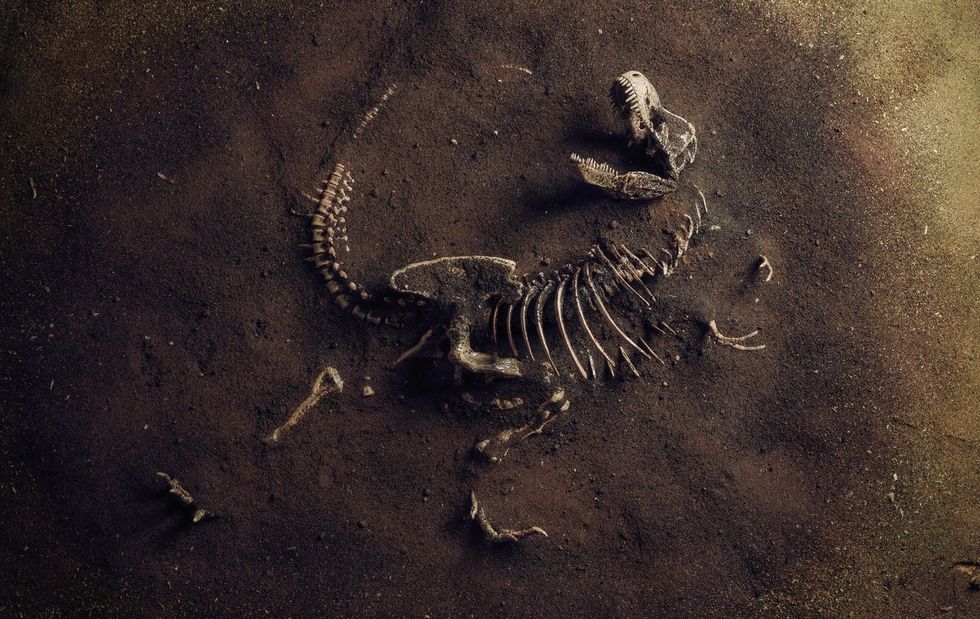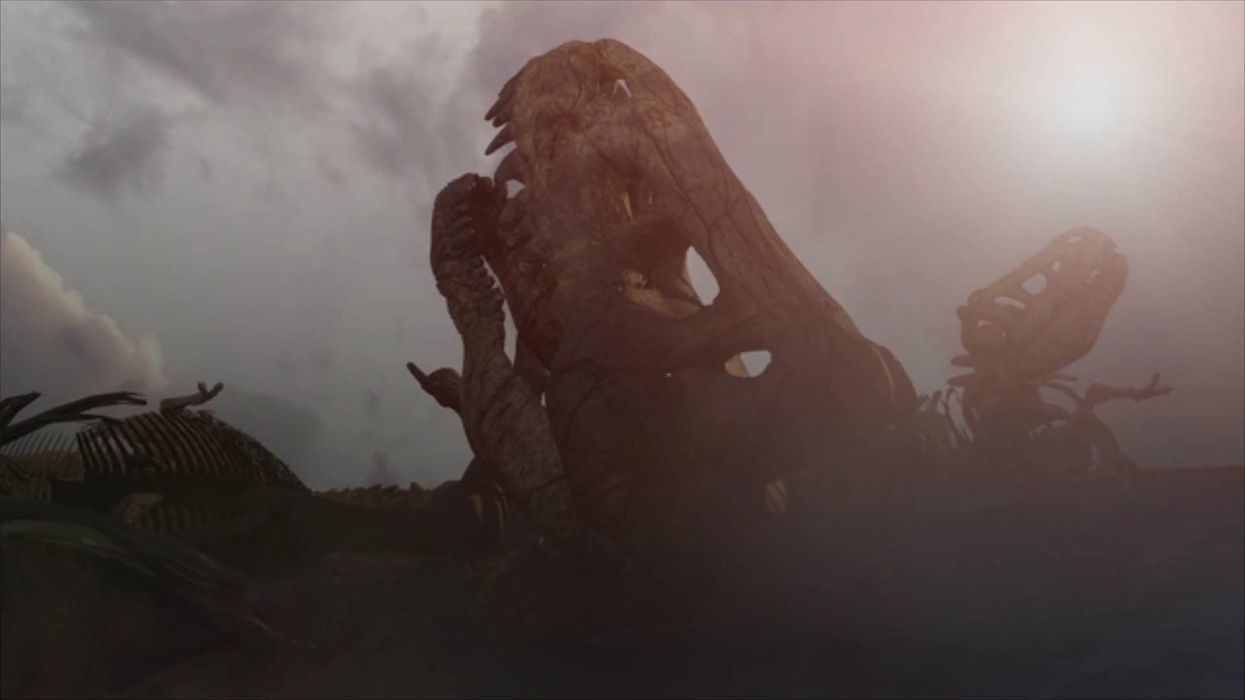Science & Tech
Harry Fletcher
Nov 07, 2023
Scientists Say Impact Winter From Asteroid May Have Caused the Mass Extinction …
Cover Media - Shareable / VideoElephant
It’s one of the questions which has fascinated scientists for hundreds of years, but how did the dinosaurs really go extinct?
Well, new research might have just solved the mystery once and for all.
Of course, most people are familiar with the fact that an asteroid struck the Earth around 66 million years ago, but fewer people might know that the object measured a whopping 10 to 15 kilometres wide and landed in Mexico’s Yucatan Peninsula.
Fewer people still might know that while it sparked all sorts of devastation, including earthquakes and megatsunamis, and now experts have revealed that what might have really proved fatal for the dinosaurs was the dust that it caused.
We’re not talking a little bit of dust, either. Trillions of tons of the stuff was released into the atmosphere when then asteroid struck.
The damage done by this dust is explored in the new report published by Nature Geoscience.

So much was released, in fact, that it caused a “global winter”, with huge clouds of silicate dust and sulphur causing temperatures to drop by 15C.
The lack of light would have caused entire ecosystems to collapse, causing 75 per cent of species to be rendered extinct.
The effects of the dust could have blocked out sunlight for as long as two years, which according to the Belgium researchers who led the study is what would have killed off dinosaurs gradually – rather than being killed off straight away by the asteroid.
It is, however, what eventually led to other life forms emerging and ultimately the development of the human race.
"Dinos dominated Earth and were doing just fine when the meteorite hit," co-author of the study and planetary scientist Philippe Claeys said.
"Without the impact, my guess is that mammals - including us - had little chance to become the dominant organisms on this planet."
Sign up for our free Indy100 weekly newsletter
How to join the indy100's free WhatsApp channel
Have your say in our news democracy. Click the upvote icon at the top of the page to help raise this article through the indy100 rankings
Top 100
The Conversation (0)














